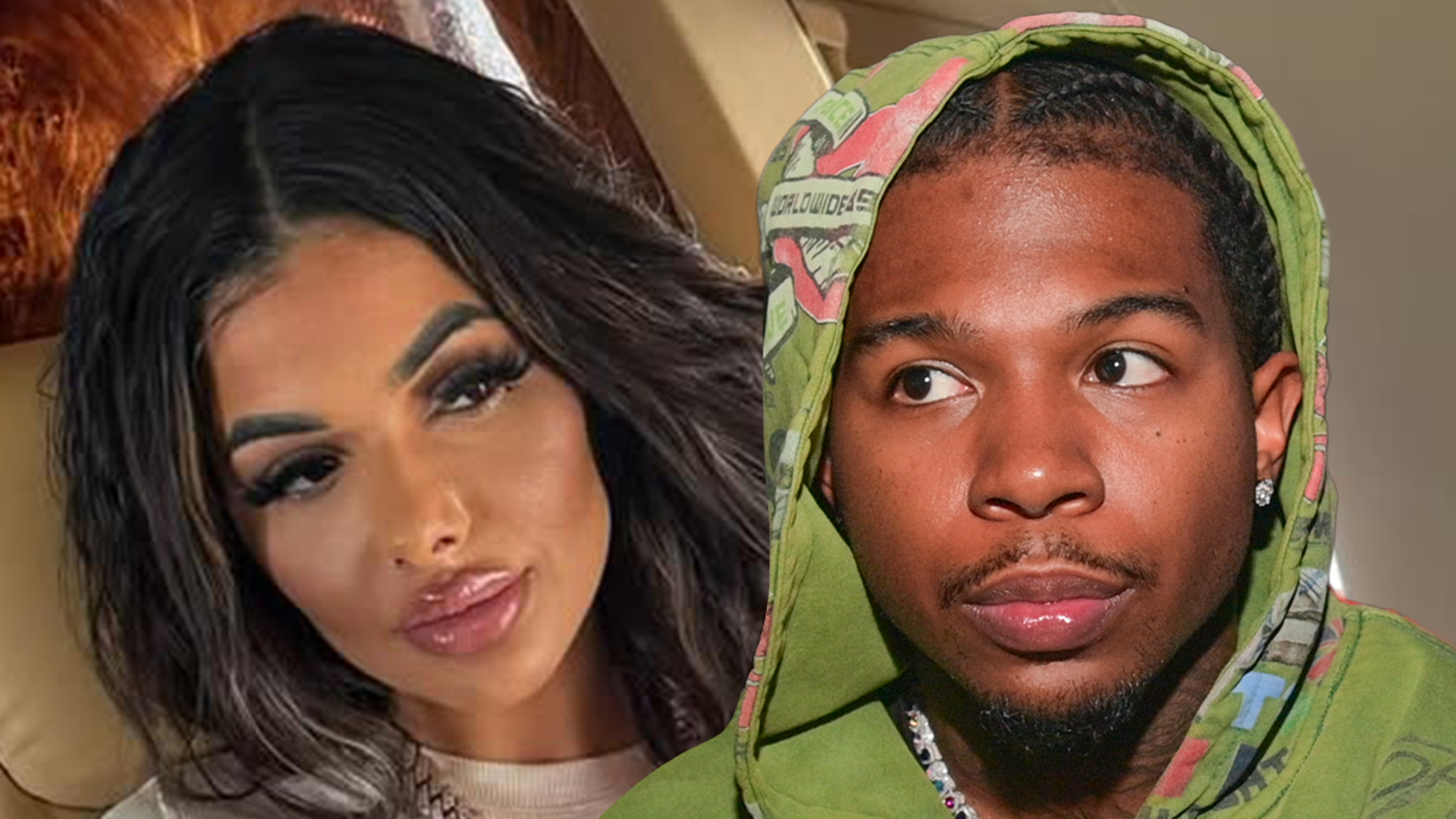Late Show with Stephen Colbert Wins Emmy, Makes History

Introduction
The Late Show with Stephen Colbert made history at this year's Emmy Awards, taking home the trophy for Outstanding Talk Series. The win marked the show's first ever in this category, and Colbert was quick to show his gratitude to fellow late-night hosts Jon Stewart and Jimmy Kimmel for their support and inspiration throughout his career.
Behind the Win
Colbert's success has been a long time coming, with the late-night host being a fan favorite for years as a correspondent on The Daily Show and later as the host of The Colbert Report. But it wasn't until he took over The Late Show in 2015 that he truly found his footing and solidified his place in the late-night landscape. His sharp wit, political commentary, and celebrity interviews have all contributed to the show's success.
Impact on Late-Night TV
The Late Show's win is not only a personal achievement for Colbert, but it also has larger implications for the late-night TV landscape. With the show's victory, Colbert has proven that he can compete with the likes of Jimmy Fallon and Jimmy Kimmel, who have long dominated the late-night ratings. This win also solidifies Colbert's place as one of the top late-night hosts, and his continued success will surely keep him at the forefront of the late-night conversation for years to come.
About the People Mentioned
Stephen Colbert
Stephen Colbert is a renowned American comedian, actor, and television host. Born on May 13, 1964, he initially gained recognition as a correspondent on Comedy Central's "The Daily Show" from 1997 to 2005. During this period, he contributed to the show's numerous Emmy and Peabody Awards wins. One of his notable segments was "This Week in God," where he humorously reported on theological topics. In 2005, Colbert launched "The Colbert Report," a satirical news program that parodied conservative pundits, particularly shows like "The O'Reilly Factor." The show became a huge success, catapulting Colbert to full celebrity status. His appearance at the 2006 White House Correspondents' Association Dinner further solidified his reputation for sharp political satire. He also authored several best-selling books, including "I Am America (And So Can You)" in 2007. In 2015, Colbert succeeded David Letterman as the host of CBS's "The Late Show with Stephen Colbert." Initially, the show faced challenges in finding its footing, but it eventually rose to the top of the ratings, particularly after Colbert began focusing on political humor related to the Trump administration. He hosted the 69th Primetime Emmy Awards in 2017 and has won numerous awards, including nine Primetime Emmy Awards and two Grammy Awards. Colbert continues to be a significant figure in American television, known for his witty commentary and satire. He has also been involved in various other projects, including providing voice work for animated films and co-authoring books. His work has earned him recognition as one of Time's 100 Most Influential People in 2006 and 2012.
Jimmy Kimmel
James Christian Kimmel, known as Jimmy Kimmel, is an American television host and comedian born on November 13, 1967. He is best known as the host and executive producer of *Jimmy Kimmel Live!*, a late-night talk show on ABC that has aired since 2003. Kimmel holds the distinction of having the longest tenure among current U.S. late-night hosts, with 23 seasons, second only to Johnny Carson’s 30 seasons[^1^]. Before *Jimmy Kimmel Live!*, Kimmel gained recognition as co-host of Comedy Central’s *Win Ben Stein’s Money*, winning a Daytime Emmy Award for Best Game Show Host in 1999, and as co-host of *The Man Show*. He also co-founded Jackhole Industries, a production company behind shows such as *Crank Yankers*, *Sports Show with Norm Macdonald*, and *The Andy Milonakis Show*[^1^][^2^]. Kimmel has hosted major award ceremonies multiple times, including the Primetime Emmy Awards (2012, 2016, 2020) and the Academy Awards in 2017, 2018, 2023, and 2024. His style blends political satire with viral comedy segments, such as “Mean Tweets” and celebrity pranks, contributing to his widespread popularity[^1^][^4^]. In his personal life, Kimmel was first married to Gina Maddy with whom he has two children. Since 2013, he has been married to Molly McNearney, a co-head writer for his show, and they have two children together. Kimmel has publicly shared his experiences with his son Billy’s congenital heart condition, using his platform to raise awareness about healthcare issues[^4^]. Most recently, in September 2025, ABC suspended *Jimmy Kimmel Live!* for a week following controversial comments Kimmel made regarding the assassination of Charlie Kirk during a monologue[^1^]. Despite this, Kimmel remains an influential figure in American late-night television and comedy. [^1^]: Wikipedia [^2^]: Biography.com [^4^]: Hausabeats.com
About the Organizations Mentioned
Late Show
The **Late Show** is a landmark American late-night talk show franchise that aired on CBS from August 30, 1993, to its announced conclusion in May 2026. It was created and initially hosted by **David Letterman**, who transitioned from NBC’s *Late Night with David Letterman* to CBS, launching the franchise with a fresh, often irreverent and innovative approach to late-night television. Letterman’s tenure lasted 22 years, during which the show earned multiple Emmy Awards and became known for its blend of humor, celebrity interviews, and musical performances, hosted from the iconic Ed Sullivan Theater in Manhattan[1][2][3]. Letterman’s style was a mix of good-natured humor and sharp wit, occasionally antagonistic, which contributed to memorable feuds with celebrities like Cher and Madonna but was also marked by genuine sincerity linked to his Midwestern roots. Despite initial ratings success, the show’s audience gradually aged and shrank, especially as competitors like *The Tonight Show* and *Jimmy Kimmel Live!* attracted younger viewers[2][3]. In 2015, **Stephen Colbert** succeeded Letterman as host. Colbert brought his background from *The Colbert Report* and *The Daily Show*, known for satirical news and political comedy, to the franchise, aiming to rejuvenate it with sharper political and cultural satire. His version continued broadcasting from the Ed Sullivan Theater and aired four nights a week, featuring a house band led by Jon Batiste and a mix of celebrity guests and topical humor. Colbert’s *Late Show* won multiple Primetime Emmy Awards and maintained a solid following, particularly among younger adults[3][5][8]. CBS announced in mid-2025 that the *Late Show* franchise would end in May 2026, marking the close of a significant era in American late-night television that shaped the format and influenced generations of comedians and viewers[1][2]. The show's legacy includes its innovative
The Daily Show
**The Daily Show** is a pioneering American late-night talk and news satire television program that debuted on Comedy Central on July 22, 1996[1][2][3]. Created by comedians Lizz Winstead and Madeleine Smithberg, it initially focused on pop culture under its first host, Craig Kilborn, who led the show until late 1998[1][3]. The original format involved comedic monologues, celebrity interviews, and satirical segments like “Five Questions” and “Your Moment of Zen”[1]. The show's defining transformation came when Jon Stewart took over as host in January 1999, shifting the focus sharply toward political satire and media critique[1][2][3]. Stewart's tenure, which lasted until August 2015, elevated *The Daily Show* from a simple parody of news programs to a vital platform offering incisive political commentary, blending humor with serious discourse. One of Stewart’s most notable moments was his heartfelt monologue following the 9/11 attacks, which showcased his ability to balance comedy with sincere reflection and helped cement the show’s cultural significance[4]. Under Stewart, *The Daily Show* became a launching pad for many prominent comedians and correspondents, including Stephen Colbert, Steve Carell, John Oliver, and Larry Wilmore, who contributed to its sharp, influential voice in American media[2][3]. The program has won 26 Primetime Emmy Awards, underscoring its impact and quality[3]. After Stewart’s departure, South African comedian Trevor Noah hosted the show from 2015 until December 2022, continuing its legacy of timely satire while expanding its global perspective[3]. The current hosting team includes correspondents such as Ronny Chieng, Michael Kosta, and Jordan Klepper, maintaining the show’s format of blending news parody with insightful analysis[3][8]. Today, *The Daily Show* remains Comedy Central’s longest-running program and a significant cultural institutio
The Colbert Report
**The Colbert Report** was not an organization but a satirical comedy news program that aired on Comedy Central from October 17, 2005, to December 18, 2014. Created and hosted by Stephen Colbert, the show parodied cable news programs, particularly those hosted by conservative pundits like Bill O'Reilly. Colbert portrayed an exaggerated version of a right-wing conservative, using humor to critique politics and society. ### History and Key Achievements - **Launch and Reception**: The show was a spin-off of **The Daily Show** and quickly gained a dedicated fan base known as the "Colbert Nation." It received widespread critical acclaim for its biting satire and commentary on political and social issues. - **Awards and Recognition**: During its nine-season run, **The Colbert Report** won numerous awards, including six Primetime Emmy Awards and two Peabody Awards. The show's impact was significant, encouraging political engagement among younger audiences. - **Notable Segments and Initiatives**: The show included segments like "Better Know a District," which sometimes elicited notable responses from politicians. Colbert also launched a satirical presidential campaign in 2007 and created a Super PAC in 2011 to highlight issues in campaign finance. ### Current Status and Notable Aspects - **Conclusion**: The show concluded its run in December 2014, leaving a lasting impact on American culture and political satire. - **Legacy**: The program's influence extends beyond entertainment; it coined terms like "truthiness" and engaged audiences in political discussions. Stephen Colbert went on to host **The Late Show with Stephen Colbert** on CBS starting in 2015. - **Cultural Impact**: The show's influence on popular culture is evident in its ability to shape public discourse and inspire new forms of political engagement through satire. While not an organization in the traditional sense, **The Colbert Report** was a groundbreaking program that leveraged satire to critique and engage with contemporary issues, leaving a lasting legacy in














